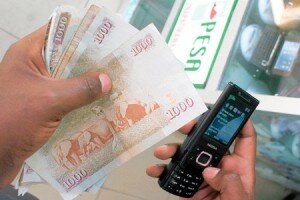
nation.co.ke
The continent has rightly received a lot of attention in the mobile money arena because of the much heralded success of Safaricom and Vodafone’s M-Pesa service in Kenya.
Bank intervention
M-Pesa was probably the most commonly spoken brand or product name at the event, and two M-Pesa staffers, VIP guests at the event, were the most sought after delegates for discussion and networking.
But it quickly becomes apparent that, six years on from its birth in Kenya, there has been little success in replicating it outside of the East African country.
Guaranty Trust Bank, Nigeria, only launched their bank led model GTMobileMoney two months ago and have yet to reach 100,000 subscribers.
In a discussion with HumanIPO, an M-Pesa official said he was surprised Nigeria was not “way ahead of Kenya” in the mobile money space.
Kingdom Bank, Zimbabwe, launched its platform CellCard in 2011, but only has 305,000 customers, with a network of 400 agents.
In presentation after presentation, speakers from major banks across the continent were holding up the M-Pesa model as the example, but were simultaneously telling their audience they should not copy it. It was a confusing message.
The added complexity comes from M-Pesa being a telecommunication network driven model. Banks are trying, or not, to replicate a service created by “not one of them”.
One of the problems with mobile money, especially now the banks are getting involved, is everyone wants to take the biggest slice of the cashless pie possible.
Gabriel Owoso, a former chief information officer at Union Bank of Nigeria, gave a passionate speech in praise of Africa’s development in mobile money: “History has put it to us in Africa to blaze the trail in creativity and innovation in mobile money.
“In science and technology I believe mobile money will be the first area for us to be leading the world and I am waiting for us to get there.”
It was motivating and meant well, but how true is that? Kenya, or Britain depending on who you believe, is the country that has blazed that trail. Not Africa.
If Africa was the true leader of mobile money then it would have gone viral across the continent by now, not just across Kenya.
A (un)realistic solution
In regards to cards payments, contactless payments and Near Field Communication (NFC), which is quickly becoming the new buzz word for payment solutions, there is also confusion.
Tom Conlon, vice president of marketing and business development in Europe, Middle East and Africa at global leader in secure electronic point-of-sale (POS) solutions provider VeriFone, was getting very excited about NFC in his presentation on Monday.
There was one problem. No information on Africa. When pressed by HumanIPO at the end of his talk why he failed to provide any information concerning the world’s second biggest continent, not to mention one which forms part of his portfolio, his answer: “It would probably be wrong.”
Top marks for honesty, but as a result it is fair to assume Africa does not feature very high on Verifone’s list of priorities and in many ways that is not surprising.
Of 700 million mobiles in Africa, only 100 million are smartphones so the market is small and the infrastructure is not in place to support it.
A different perspective was given by Dougie Henderson, Visa’s head of emerging products and innovation in Africa, who said NFC investment should be a priority for businesses in South Africa.
Out of touch?
Many of the presentations over the two days were given by top executives at major banks or payment giants and almost all of them featured a snazzy video filmed in either the United States, Europe or South Korea.
There were plenty of “oohs” and “aahs” in response to images of the archetypal twenty-first century citizen doing their grocery shopping at a virtual shop while using the subway, but how realistic is it to expect that scenario arriving in Africa in the foreseeable future?
Nedbank’s George Chirwa was one of the more sobering, down-to-earth speakers when he said technology was not the be all and end all for banks and that innovation must be done the right way and suitably targeted towards right consumer.

